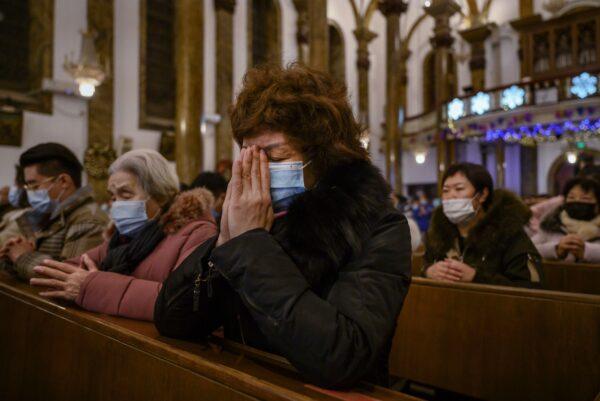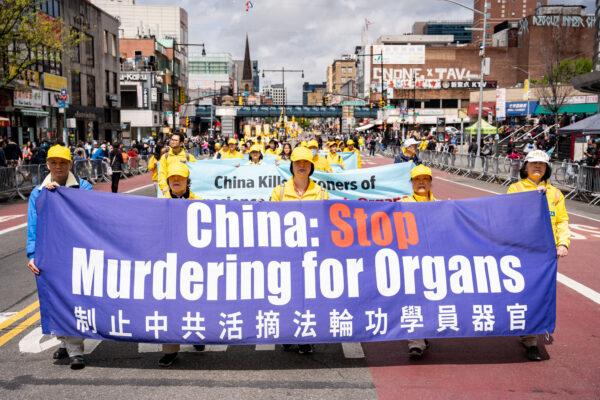Pope Francis announced that the Vatican has set up a joint commission with the Chinese communist regime for appointing bishops to China’s Catholic churches.
The commission is being presided over by Vatican Secretary of State Cardinal Pietro Parolin.
“I think that we need to advance further into the religious aspect to understand each other more. The Chinese must not think that the Church does not accept their culture and their values and that the Church is dependent on a foreign power,” the pope said.
The Vatican and China have engaged in foreign exchanges, which the pope cited as an indication of “openness” from the Chinese.
The CCP also set up the Chinese Patriotic Catholic Association (CPCA) to represent Catholics in the country. However, the Vatican had rejected such arrangements.
In July, the Vatican announced it would accept Beijing’s unilateral appointment of Bishop Shen Bin in Shanghai, formally recognizing the CCP’s installation of the bishop three months after the fact. The Vatican only learned about the appointment through the media.
CCP Controls Catholic Church in China
A 2021 report by Bitter Winter points out that Beijing had already removed any role of the pope or the Vatican in appointing bishops that year.“There is no mention of the Vatican or the Pope, which in theory should appoint the bishops under the Vatican-China deal of 2018, renewed in 2020,” the journal stated.

Despite the CCP taking away the Vatican’s power to appoint bishops, it has largely remained silent on the issue. Furthermore, critics have accused Pope Francis of turning a blind eye to the CCP’s human rights abuses.
This is aimed at helping the CPCA ensure compliance of the churches with its sinicization agenda—a policy under which religions are forced to adopt Chinese communist ideologies.
“And yet Cardinal Parolin maintains, implausibly, that sinicization is simply inculturation, the missionary practice of adopting local etiquette and art and integrating them into Catholic culture,” Ms. Shea writes.
Religious Persecution in China
In addition to sinicization, the CCP has committed several vicious crimes against religious believers in the nation.“They have been ruthlessly persecuting religious groups, including the Uyghur Muslims, Tibetan Buddhists, Christians, [and] Falun Gong practitioners,” Mr. Turkel said, adding that the human rights situation and religious freedom situation in the country has “significantly deteriorated” since 2022.
Falun Gong, also known as Falun Dafa, is a spiritual practice based on the principles of truthfulness, compassion, and tolerance and teaches a set of slow-moving meditative exercises. It was estimated that the practice had attracted between 70 million and 100 million people before the CCP, led by then-party head Jiang Zemin, launched a persecution campaign against it in 1999. The CCP had initially supported the practice, but eventually deemed its popularity intolerable, viewing it as a threat to the regime’s control over society.

“The Chinese government publicly openly labels people of faith into some sort of people who have a mental illness, who were affected with thought viruses,” he said.
The process of sinicization is evolving from “supporting the CCP” to the “worship and allegiance to Xi Jinping,” the report stated.
He said he was taken on a “secret military mission” near a prison in northeastern China. Only after reaching the place did Dr. Zheng realize that he was expected to aid in extracting the organs of a young man who was no more than 18 years old.
“It was horrifying beyond words. He was looking right at me. His eyelids were moving. He was alive,” Dr. Zheng said.
In 2019, a London-based independent tribunal concluded that the CCP killed prisoners for their organs “on a significant scale,” with the prisoners primarily being Falun Gong practitioners.







